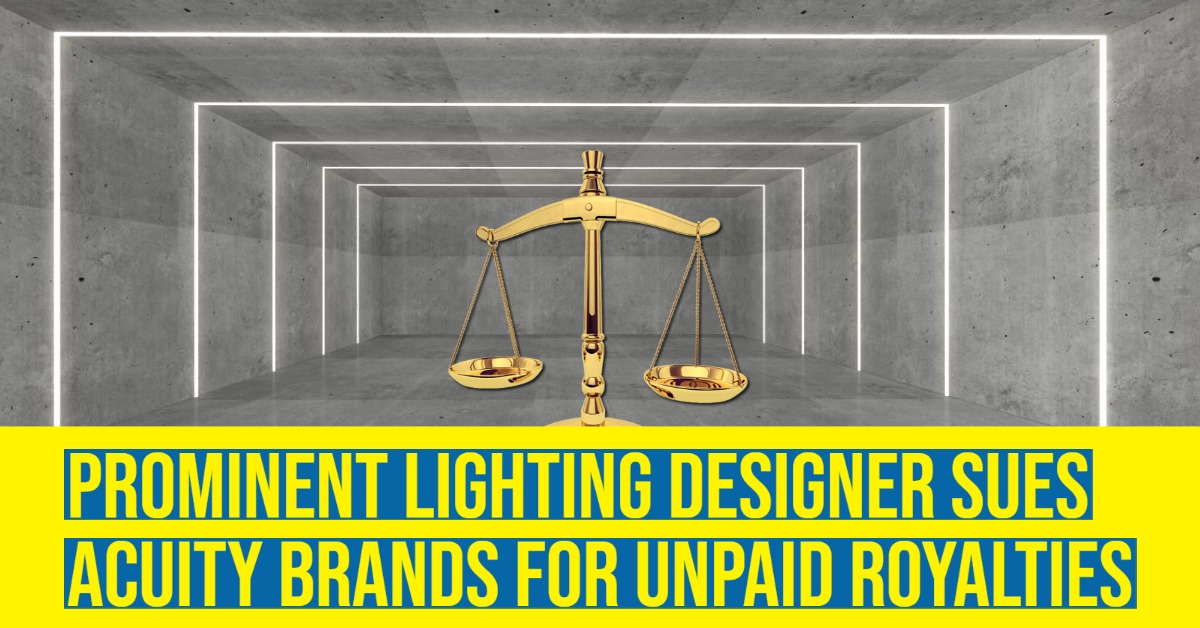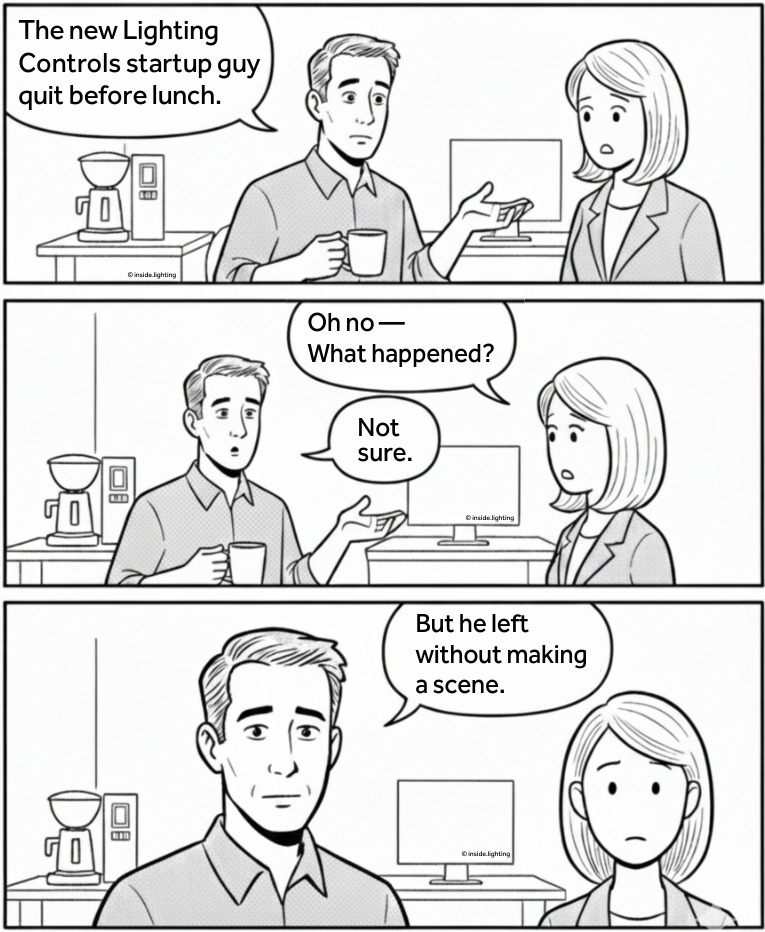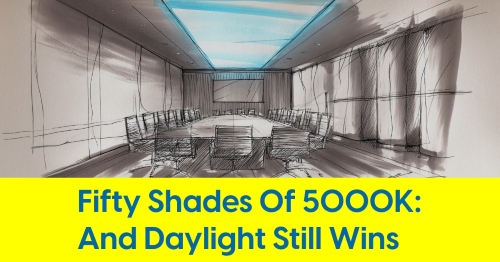March 14, 2023
Prominent Lighting Designer sues Acuity Brands for Unpaid Royalties

Susan Brady claims over $3 million is owed for designs of Slot 2, Slot 4 and other Mark Architectural Lighting products
Award winning lighting designer, Susan Brady, filed a lawsuit in New York on Friday claiming that her firm is owed back royalties of at least $3 million stemming from a 2002 contract that provided license to Mark Lighting to utilize Brady’s designs in the brand’s Slot 1, Slot 2, Slot 4, Multi-Task, and Veil product families.
According to the lawsuit, Susan Brady, individually, and her firm, Studio Light, Inc., claims that Brady was to receive from Mark Lighting a one-time design fee of $5,000 and then 5% on net sales derived from Brady’s designs. The 2002 licensing agreement seemingly had no expiration date and cites the then-yet-to-be developed luminaires as being “geared to the teleconference industry” and that they should have “dual capabilities for both ambient and specific teleconference use.”
Brady is also principal of Susan Brady Lighting Design, Inc. a lighting design firm commonly known as SBLD Studio.
In 2007, New Jersey based Mark Lighting was acquired by Acuity Brands and has since become rebranded as Mark Architectural Lighting. Before the acquisition closed, Acuity Brands executive, Chuck Meteer, presented Brady with a proposed contract that was seemingly intended to transfer the licensing agreement from Mark Lighting to Acuity Brands. In the document Meteer acknowledged that Brady “has designed a series of products known … as the ‘Slot’, ‘Multi-Task’ and ‘Veil’ fixtures.”
Modifications or Redesigns? T5, T8 designs give way to LED
The original Slot family from Mark Lighting was designed around T5 and T8 fluorescent lamp sources. At the time, the New York lighting design community was enthusiastically specifying the Selux M60 (60mm wide) and M100 (100mm wide) linear fixtures, and Mark Lighting’s answer was to stagger fluorescent lamps in its Slot families of products. Eventually the fluorescent designs disappeared from the catalog making way for the LED versions. One question the case may explore is if the LED redesign should cause Brady to cease receiving royalties.
Brady claims that she cannot ascertain whether it received royalties from LED products as Acuity Brands allegedly never provided the design firm “with information regarding LED product sales utilizing the designs. To be sure, Acuity never informed Plaintiffs that Acuity would no longer pay royalties once the LED fixtures utilizing the Designs were manufactured and sold.”
The original 2002 proposed agreement states that Brady granted Mark Lighting “…exclusive license to use the design, also to modify the design and use such modified design to manufacture, sell and distribute the actual product anywhere in the world…” The updated 2007 document, makes no mention of modifications, yet references assigning the 2002 design agreement to Acuity Brands.
Interestingly, neither the 2002 document nor the 2007 document filed by Brady were final, fully-executed contracts. Each seemed to be drafts that were marked up and lacked an executory signature from both parties.
Court records don’t yet indicate that Acuity Brands has been served with the lawsuit. Once the company is served with a summons they will have thirty days to file their answer with U.S. District Court for the Southern District of New York.
We reached out to both Susan Brady and Acuity Brands for comment. Neither provided a response in the two-hour window before press time.
NOTE: A previous version of this article inaccurately cited that SBLD Studio was a DBA of Studio Light, Inc. We regret the mistake. Susan Brady is President of Susan Brady Lighting Design, Inc. and Studio Light, Inc. -- two separate corporations in the state of New Jersey.










